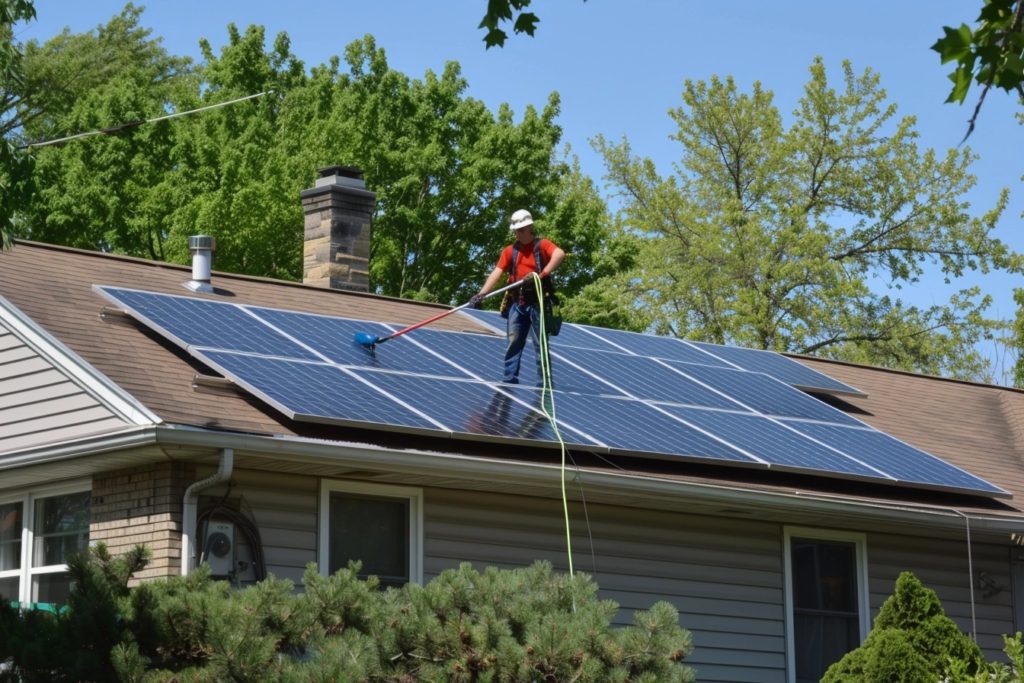
There are plenty of benefits when it comes to installing solar panels to power your home. Not only are you helping protect our environment by using clean energy, but you can also save some serious money compared to traditional fossil fuels. On a nationwide level, the solar investment tax credit (ITC) is slowly being phased out — homeowners can deduct 26% of their solar costs in 2020 and 22% in 2021, but residential tax credits will be eliminated in 2022.
Update: In August 2022, the solar tax credit was increased to 30% and extended through 2032.
However, even when the ITC expires for residential applications, it’s possible that you can still qualify for solar panel incentives from your state. Tax incentives for solar have proven to be effective, as installations of residential solar systems have increased dramatically over the years. In this article, we’ll discuss solar incentives by state, explaining a few of the most popular programs around the country and pointing you in the right direction to find out about incentives in your home state.
Let’s begin by talking about Florida solar incentives. This state offers net energy metering which allows homeowners to sell any extra energy produced by their solar systems to their utility providers. Instead of paying cash for this energy, the utility provider gives you energy credits which you can cash in when you need to pull additional energy from the power grid. In addition, Florida offers property tax exemptions for residential solar panel installations, and they also don’t charge any sales taxes on solar panels or batteries.
Moving from one sun-drenched state to another, how about California solar incentives? California has more solar power than any other state, and this state has set a goal to be powered entirely by carbon-free energy sources by the year 2045. As you might expect, California also has generous solar incentives.
Their Self-Generation Incentive Program (SGIP) provides rebates to homeowners who purchase solar batteries, and this program will run through at least 2025. This rebate can be extremely valuable, as your savings can reach $400 per kilowatt-hour in some circumstances. Your exact rebate value will vary based on when you make your purchase, and also which size of battery you choose. In addition, California has a similar net energy metering program to the one offered in Florida, and they also offer property tax and sales tax exemptions.
Next, let’s discuss Illinois solar incentives. This state offers solar incentives in the form of the Adjustable Block Program, which provides homeowners with renewable energy credits in exchange for selling the power generated by their solar systems. We will note that spots in this program are limited, and the earlier in the year you submit your application, the more likely it is that you will be able to participate.
How about Massachusetts solar incentives? In this state, you can take advantage of the Solar Massachusetts Renewable Target (SMART) program, which provides monthly rebates for solar batteries and panels for a decade. As more homeowners sign up for this program, the payouts will decrease, so the sooner you can get in, the better. Additionally, Massachusetts offers net metering, income tax credits, property tax exemptions, and sales tax exemptions. It’s a well-rounded collection of incentives that is quite inviting to homeowners.
Texas solar incentives are structured a little bit differently. This state doesn’t have any statewide tax credits, net metering policies, or rebates for solar, but quite a few local governments and utilities offer robust solar credits and net metering opportunities. You can also take advantage of the state’s renewable energy property tax exemption.
To take a closer look at the solar incentives available in your state, check out the Database of State Incentives for Renewable Energy, or DSIRE. This resource helps you find solar incentives and related policies in all 50 states. Just type your ZIP code into the search box on the top of their homepage and they’ll tell you all about the programs available in your location. While most states do offer some sort of solar incentives, there are unfortunately some states that don’t provide any noteworthy residential incentives, like Alabama for instance.
Or, you can also feel free to contact LGCY Power and discuss solar incentives in your state with one of our highly experienced Energy Consultants. They can outline the incentives available to you and help you plan your solar panel installation. If you’re looking to reduce your carbon footprint while also saving some serious cash, call us today at 1-866-566-2650.




